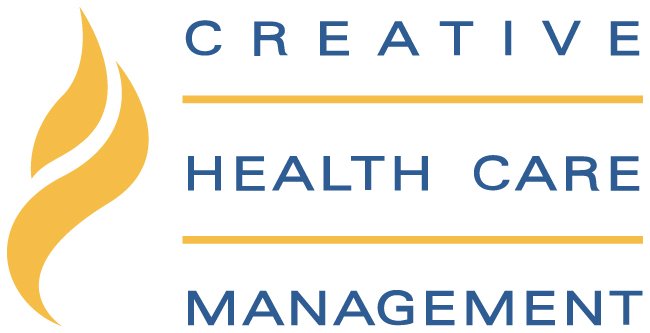The healthcare industry is a fast-paced, ever-evolving landscape that requires exceptional professionals to navigate its complexities. Healthcare managers are at the heart of the dynamic healthcare management environment, ensuring the smooth operation of the hospital organization and the delivery of high-quality health care.
Creative Health Management, a leader in healthcare consulting, partners with each healthcare manager within the healthcare organization to guide them through these challenges, creating a culture of excellence and innovation.
In this blog post, we will explore the diverse roles a healthcare manager, the impact of their work on hospital systems, and the future of healthcare management.
Quick Overview
- Healthcare managers play a vital role in the C-Suite of a hospital organization, collaborating with other professionals to ensure smooth functioning and contribute significantly to its overall performance.
- Creative Health Care Management partners with healthcare organizations to provide strategic guidance and support for C-suite healthcare managers, helping them make data-driven decisions that optimize and improve healthcare services.
- Creative Health Care Management’s vision is to collaborate with healthcare management to drive innovation, enhance patient and employee satisfaction, and promote a culture of excellence within hospital organizations.
Navigating the C-Suite: The Role of Healthcare Management

In the C-suite of a healthcare organization, healthcare managers oversee diverse aspects of hospital operations, including health care management. They collaborate with Creative Health Management to excel in shared governance and leadership. These professionals, also known as health care managers, possess a diverse skill set, including:
- Planning
- Organizing
- Implementing
- Monitoring
- Evaluation abilities
With a projected job growth rate of 32% according to labor statistics, health care management has become a sought-after career choice for individuals seeking stability, career growth, and job satisfaction.
The C-suite in healthcare is populated with a variety of executive roles, each owning different aspects of hospital management and operations. A healthcare manager will work closely with other healthcare professionals to ensure smooth functioning within the organization. From managing financial planning to overseeing healthcare operations, healthcare managers contribute significantly to the overall performance and success of the organization.
Understanding the C-Suite Landscape in Healthcare
A variety of executive roles populate the C-suite healthcare jobs, including:
- Chief Executive Officer (CEO)
- Chief Financial Officer (CFO)
- Chief Operating Officer (COO)
- Chief Compliance Officer (CCO)
- Chief Medical Officer (CMO)
- Chief Nursing Officer (CNO)
- Chief Information Officer (CIO)
- Chief Experience Officer (CXO)
These roles oversee specific aspects of healthcare such as finance, operations, compliance, medical affairs, nursing, strategic planning, information technology, and patient experience.
The diverse range of responsibilities within the C-suite necessitates a strong understanding of the healthcare industry and the ability to make informed decisions that align with the organization’s goals.
Strategic Partnerships with Creative Health Care Management
Creative Health Care Management (CHCM) partners with healthcare administration of small, medium and large healthcare organizations to provide strategic guidance and support for C-suite executives in the realm of health administration and health services management. This collaboration enables all health services managers to make well-informed, data-driven decisions that optimize resources, improve health care, and drive innovation within the organization.
Governance and Leadership Excellence
A healthcare manager can work with Creative Health Management to ensure effective governance and leadership within hospital organizations. By implementing shared governance models that empower nurse leaders, nursing staff, and interdisciplinary teams to influence decision-making and improve healthcare outcomes, Creative Health Management creates a culture of ownership, accountability, and equity within the healthcare setting.
As a result, all healthcare staff are better equipped to navigate the challenges of the healthcare industry and lead their organizations to success.
The Impact of Healthcare Management on Hospital Systems

From advancing certification goals to integrating technology and management practices, healthcare management significantly impacts hospital systems. Creative Health Management plays a vital role in assisting hospitals in achieving Magnet® or Pathway® designation or redesignation, enhancing their reputation and quality of care.
Furthermore, healthcare managers are instrumental in integrating technology and management practices to improve health care and operational efficiency.
Advancing Hospital Certification Goals
Creative Health Management aids hospitals in securing Magnet or Pathway designation or redesignation, thereby enhancing their reputation and quality of care. Their supportive guidance prioritizes nursing excellence and helps meet recognition criteria, leading to:
- Improved quality results
- Enhanced health care
- Advancements in nursing practices
- Recognition for healthcare excellence
Integrating Healthcare Technology and Management
Healthcare managers are integral to integrating technology and management practices, enhancing patient health care and operational efficiency. They can achieve this by following these steps:
- Define the problem(s) the technology is intended to address.
- Establish consensus among stakeholders.
- Explore and assess various options.
- Select systems that fulfill the organization’s specific requirements.
By following these steps, healthcare managers can successfully integrate technology into healthcare systems for better patient outcomes and streamlined processes.
Healthcare administrators are key in deciding new platform technology providers. MyCHCI, a platform tool utilized for nursing competencies and gathering data automatically to submit to the ANCC’s DDCT is fast becoming the go to suite for healthcare providers.
Healthcare Management Careers: A Spectrum of Opportunities

Careers in healthcare management present a plethora of opportunities, spanning from public health to private practice, each with unique education and credential requirements. Typically, those aspiring to be healthcare managers require a bachelor’s degree or a master’s degree in healthcare management or a related field, supplemented by relevant experience.
With diverse job titles and settings, healthcare management professionals can find a fulfilling career path that aligns with their interests and expertise.
From Public Health to Private Practice
Healthcare management professionals can work in diverse settings, including public health organizations, private practices, and hospitals. These various settings present unique challenges and opportunities, with healthcare managers needing to adapt their skills and knowledge to successfully navigate the intricacies of each environment.
From addressing workforce shortages and rising costs in public health organizations to managing administrative burdens and financial management in private practices, healthcare managers, also known as health services managers and healthcare administrators, play a critical role in ensuring the delivery of high-quality care across the healthcare spectrum. These professionals work closely with healthcare providers to maintain efficient operations and improve patient outcomes.
Education and Credentials for Aspiring Managers
Typically, those aspiring to be healthcare managers require a healthcare management degree, such as a bachelor’s degree or master’s degree in healthcare management, or a related field, supplemented by relevant experience. Degree programs in healthcare management often include courses in:
- Healthcare Systems and Policy
- Healthcare Finance and Accounting
- Healthcare Quality and Performance Improvement
- Healthcare Leadership and Management
- Healthcare Law and Ethics
By obtaining the necessary education and credentials, aspiring healthcare managers can pursue a rewarding career in the ever-evolving world of healthcare.
The Dynamics of Healthcare Management and Working with Patients

In healthcare management, also known as healthcare administration, business administration is balanced with compassionate service, prioritizing care while ensuring efficient operations. Healthcare managers need to:
- Efficiently manage resources
- Make informed decisions
- Navigate intricate regulations
- Prioritize the best interests of patients.
This delicate balance is crucial in delivering high-quality care and developing a culture of excellence within a healthcare organization.
The Role of Health Information Managers
Health information managers play a crucial role in maintaining patient records and ensuring compliance with regulations, contributing to the overall quality of care. They are responsible for managing patient data within a healthcare facility or network, ensuring that patient data is accurate, accessible, and secure.
By effectively managing health information systems and adhering to regulatory requirements, health information managers support the delivery of high-quality care and the efficient operation of healthcare organizations.
Project Management and Financial Stewardship in a Healthcare System

In ensuring sustainable growth and efficient operations, project management, financial stewardship and resource allocation are critical aspects of healthcare management. Navigating the intricate world of healthcare economics, healthcare managers have to make informed decisions about resource allocation and financial management.
Creative Health Care Management supports healthcare managers in this task, partnering with them to drive innovation, improve patient care, and stay true to a culture of excellence within hospital organizations.
Navigating Healthcare Economics
Navigating the intricate world of healthcare economics, healthcare managers have to make informed decisions from medical billing to knowing how to monitor budgets. This involves understanding the key principles of healthcare economics, such as:
- Resource allocation
- Efficiency in resource utilization
- Spending growth
- The patient and provider’s role
- The effects of risk and insurance
- Benefits design
- Payment reform
By staying informed about emerging trends and challenges in healthcare economics, healthcare managers can develop effective strategies to ensure the financial stability and sustainable growth of their organizations.
Ensuring Sustainable Growth
Creative Health Care Management works with healthcare managers to ensure sustainable growth and financial stability within hospital organizations. A hospital administrator achieves this by:
- Optimizing resource allocation
- Improving operational efficiency
- Exploring innovative approaches to reduce waste through process enhancements and supply cost reductions
By doing so, Creative Health Care Management supports the overall wellbeing of healthcare organizations and ensures that communication skills are deployed effectively to deliver high-quality patient care through medical and health services.
Cultivating a Culture of Excellence in Healthcare Facilities
To cultivate a culture of excellence in healthcare facilities, promotion of professional development among staff and practicing ethical leadership and decision-making are essential. Recognizing and nurturing the leadership abilities of their staff, supporting their professional growth, and upholding the highest standards of ethical conduct, healthcare managers play a vital role in fostering this culture.
Creative Health Care Management partners with healthcare managers to further promote a culture of excellence within healthcare organizations, driving innovation and improvement in each specific department.
Promoting Professional Development Among Staff
Healthcare managers play a vital role in promoting professional development among staff, by creating a culture of continuous learning and improvement. By implementing strategies such as:
- Establishing formal orientation programs
- Offering cross-functional training opportunities
- Supporting continuing education and board certifications
- Providing coaching and mentoring programs
Healthcare managers can cultivate an environment of perpetual learning and advancement within their organizations.
Ethical Leadership and Decision-Making
Ethical leadership and decision-making are essential for healthcare managers, ensuring that patient care and organizational practices align with industry standards and regulations. This involves making choices that prioritize the patient’s interests while also taking into account the financial and operational implications.
Ethical leadership promotes collaboration and teamwork, resulting in improved patient outcomes and organizational success. By adhering to ethical guidelines and collaborating with regulatory bodies, healthcare managers can ensure the highest standards of care and compliance within their organizations.
The Future of Healthcare Management: Trends and Predictions
The future of healthcare management entails readiness for tomorrow’s challenges and adopting Creative Health Care Management’s vision for progressive leadership. As the healthcare landscape continues to evolve, healthcare managers must stay informed about emerging trends and challenges in the industry, adapting their practices and strategies accordingly.
By partnering with Creative Health Care Management, healthcare managers can drive innovation, improve patient care, and foster a culture of excellence within their organizations, ensuring a bright future for healthcare management.
Creative Health Care Management’s Vision for Progressive Leadership
Creative Health Care Management’s vision for progressive leadership involves partnering with healthcare managers to drive innovation, improve patient care, and create a culture of excellence within the healthcare field. Through collaborative efforts and a commitment to innovation, Creative Health Care Management supports healthcare managers in navigating the complexities of the healthcare industry and achieving sustainable growth.
By embracing this vision for progressive leadership, healthcare managers and organizations can continue to excel in the ever-evolving world of healthcare.
Summary
Throughout this blog post, we have explored the diverse roles and responsibilities of healthcare managers, the impact of their work on hospital systems, and the future of healthcare management. By partnering with Creative Health Care Management and embracing a culture of excellence, healthcare managers can navigate the complexities of the healthcare industry and drive innovation, improvement, and growth within their organizations. As healthcare management continues to evolve, it is essential for healthcare managers to adapt their practices and strategies, ensuring the highest standards of care and the sustainable success of their organizations.
Frequently Asked Questions
What can you do with a degree in healthcare administration?
With a degree in Healthcare Administration, you can pursue roles such as Medical Director, Assisted Living Residence Administrator, Nursing Recruiter, Healthcare Consultant, Medical Records Manager, Director of Nursing, Healthcare Administrator and Health Information Manager.
What are the key responsibilities of healthcare managers?
As healthcare managers, it is their responsibility to ensure smooth operations in hospitals, from financial planning to patient care and compliance with regulations. Additionally, they collaborate with other healthcare professionals and organizations to achieve excellent governance and leadership.
What educational background is typically required for a career in healthcare management?
A bachelor’s or master’s degree in healthcare management or a related field, along with relevant experience, is typically required for a career in healthcare management.
How does Creative Health Care Management support healthcare managers in their roles?
Creative Health Care Management partners with healthcare organizations to provide strategic guidance and support for C-suite healthcare managers, enabling them to exercise effective governance and leadership within hospital organizations.
What is the significance of financial stewardship and resource allocation in healthcare management?
Financial stewardship and resource allocation are essential components of healthcare management, as they enable organizations to effectively manage costs and resources, while sustaining growth and efficiency.
Sources:
https://www.ncbi.nlm.nih.gov/books/NBK544227/
https://en.m.wikipedia.org/wiki/Health_administration
https://nursinglicensemap.com/resources/healthcare-careers/what-is-healthcare-management/
https://publichealth.tulane.edu/blog/healthcare-manager/
https://www.herzing.edu/description/healthcare-manager
https://www.msudenver.edu/what-can-you-do-with-a-healthcare-management-degree/





